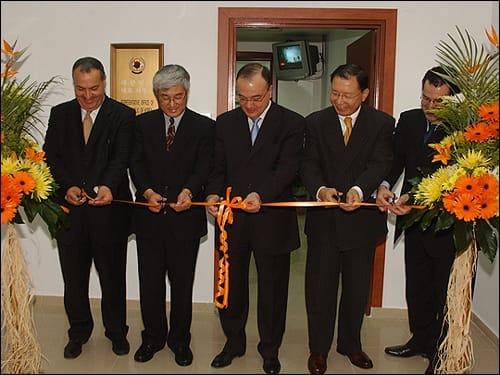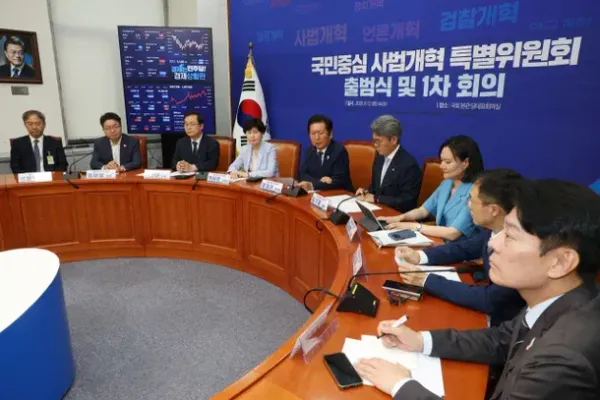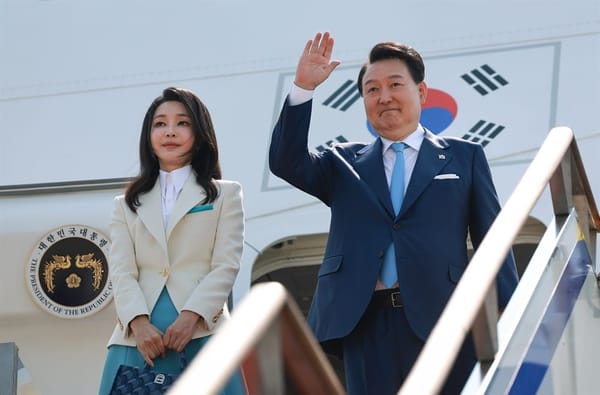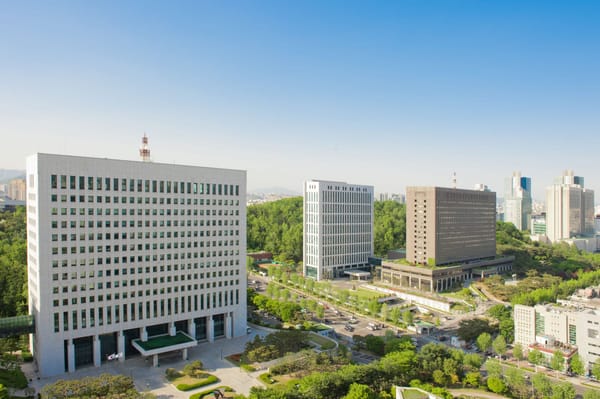Photo: Roh Moo-hyun (left) and Chung Mong-jun in an agreement to hold an ad hoc primary to unify the presidential field. Credit: Website of the Roh Moo-hyun Foundation.
Popular election is the hallmark of democracy, and South Korea has had free and fair election since its democratization in 1987. But the primaries - the inter-party election to select the candidates who would run in the final election - is a more recent feature in Korean politics. And like many things in South Korea, the imported devices are localized in a peculiar way that makes sense in the context of Korean society.
In the early days of South Korean democracy, the selection of candidates was strictly a machine politics affair. The candidates were selected by the vote of the party delegates 대의원, who were selected based on their contribution to the local party. This system favored the political boss who cultivated the biggest internal faction through years of relationship-building and fundraising - such as the “Three Kims” 삼김 who dominated 1990s South Korean politics, Kim Young-sam 김영삼, Kim Dae-jung 김대중 and Kim Jong-pil 김종필. This changed in 2002, when the Democratic Party 민주당 introduced popular primaries 국민참여경선 to select its presidential candidate. The political drama created through the first direct participation in the selection of the presidential candidate lifted the sagging fortunes of the ruling liberal party. Against the presumptive favorite Lee In-je 이인제, a machine politician par excellence, the popular champion Roh Moo-hyun 노무현 stormed through primaries and captured the public’s imagination, eventually becoming South Korea’s first post-Three Kims president. Since then, the primary election system has taken root in South Korean politics at nearly all levels, including local elections for mayors and governors as well as Assembly elections.
South Korea’s primary elections are marked by creative and flexible rules that are intended to encourage a political party’s self-governance. Unlike the general election, primary elections need not strictly follow the one-person, one-vote principle. Instead, they often feature a mixture of delegate voting, online voting by the party members, opinion polls and bonus points. For the upcoming Seoul and Busan mayoral by-elections, the Democratic Party 민주당 primaries will use a mixture of 50% vote by the due-paying members of the party 권리당원 and 50% public opinion poll. Women and first time candidates are given a 10% bonus, and a first time woman candidate is given a 25% bonus. The People Power Party 국민의힘, on the other hand, will select its candidates based entirely on opinion polls, also with the 10% bonus given to women candidates.
This flexibility means that the primary rules change constantly at each election, and the fight to set the rules can become a source of friction. Complicating the picture is the frequent attempts in South Korean politics to unify the field, usually done by the opposition parties in an attempt to band against the ruling party. It is common to see several parties throw together an ad hoc primary election within a single month to select the unity candidate. In 2002, for example, Roh Moo-hyun 노무현 negotiated an ad hoc primary with the popular independent Chung Mong-jun 정몽준, a scion of the Hyundai 현대 chaebol group. It only took three weeks in November for Roh and Chung to agree on the primary rules and conduct the primary based on opinion polls, making Roh the unity candidate with less than one month to go in the presidential election. In the upcoming Seoul mayor by-election, a major open question is whether the People’s Party 국민의당 chairman Ahn Cheol-su 안철수 will try to form a unified field with the PPP. (See profile of Ahn Cheol-su here.) Expect a dogfight in the next month.








